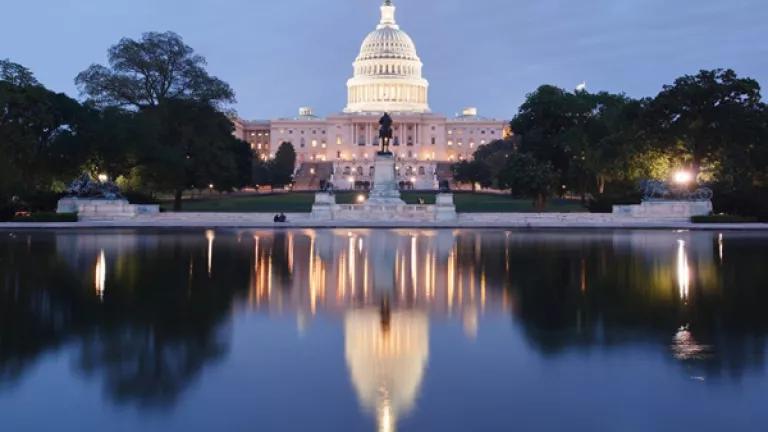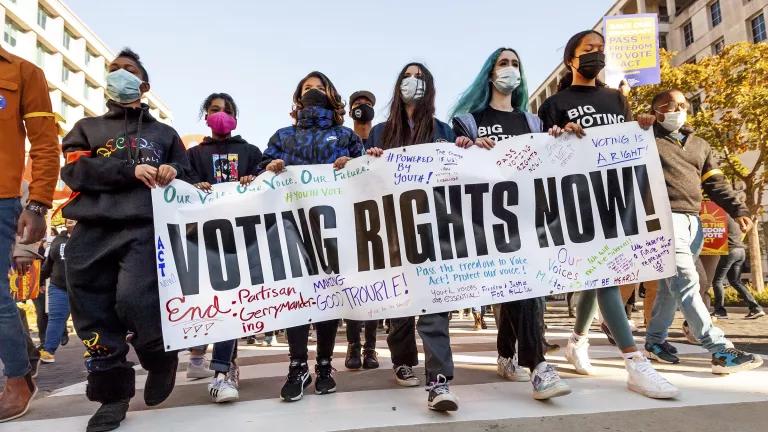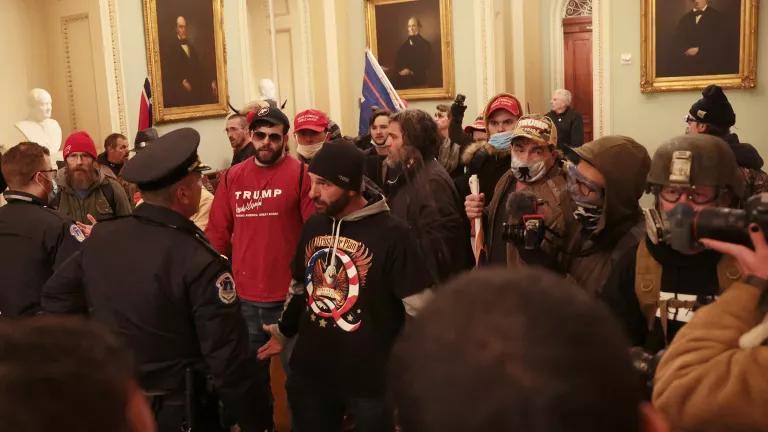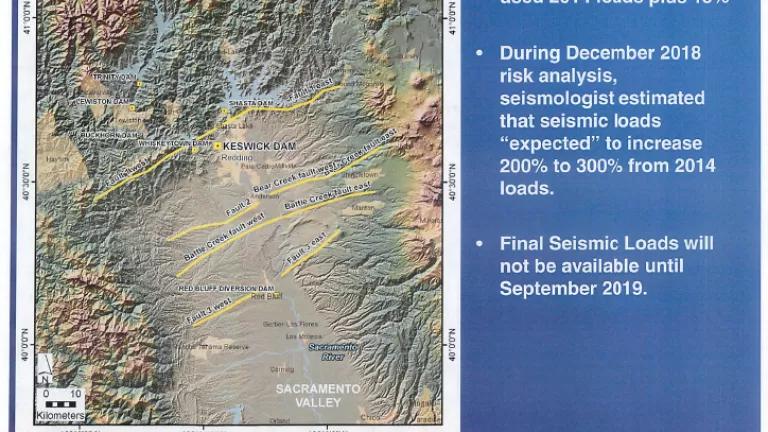Congress: Support our Communities

LEARN MORE ABOUT NRDC’S RESPONSE TO COVID-19.
I've had the privilege of traveling across the United States to meet and work with the front line defenders against climate change—our mayors, and their sustainability and transportation teams. I get to do this work because NRDC is a core partner of the Bloomberg Philanthropies American Cities Climate Challenge, an initiative to help 25 cities significantly deepen and accelerate their efforts to tackle climate change and promote a sustainable future for their residents.
Before COVID-19 hit the United States, cities were making tremendous gains on reducing carbon emissions and increasing resiliency. Within the Climate Challenge we have seen ambitious goals, such as Boston, DC and Seattle’s commitments to carbon neutrality by 2050, and Los Angeles’ launch of their own Green New Deal.
However, the current coronavirus crisis is having worse impacts than putting the climate fight at risk. Our communities' health, economic livelihoods, and the core functions of local governments are on the line. Our cities’ staff are at the front lines, putting their own health at risk, delivering emergency services, like responding to 9-1-1 calls, and providing more commonplace but vital services like access to park space and safe streets for residents.
That is why NRDC is asking Congressional leaders to support state and local governments with $250 billion in direct aid. While the CARES Act made a valiant first effort, the $150 billion allocated to states and cities is not flexible enough to cover general budget shortfalls. That means cities cannot use these funds to pay for any previously planned activities, like keeping a water sewage treatment plant open, road maintenance, or city staff salaries—if it is not an unplanned COVID-19 related expense, it is not eligible for funding. Additionally, the CARES Act does not provide any guarantee that cities will receive money directly, especially those under 500,000 in population.
If you haven’t heard already, the city and state budget situation is dire. The National League of Cities estimate that nearly 100 percent of cities with populations above 50,000 will see a revenue decline this year, and about half of those communities will also face unanticipated expenses, like building a COVID-19 response field hospital. Their members reported that 50 percent of all cities of all sizes will have their police forces affected, and there will be many, many layoffs.
To provide just a few specific examples:
- The city of Cincinnati furloughed 1,700 workers, over a quarter of the city’s staff
- Los Angeles announced similar plans to furlough thousands
- San Antonio announced furloughs for 270 city staff
Unfortunately, these thousands of city staff join the millions already unemployed during this crisis, without any guarantee of a return to work.
It has been particularly heartbreaking for those of us championing climate policies. Even as we’re starting to see policy and legislative victories, we now have to wonder if there will be funding or staff to implement these ambitious plans.
In San Antonio, the city council passed a Property Assessed Clean Energy (PACE) ordinance, which creates an innovative and affordable financing mechanism enabling property owners to pay for energy efficiency or renewable energy upgrades. PACE uses private capital to leverage municipal resources, such as marketing and outreach. However, the trajectory of that program is in jeopardy as it must compete with the public health crisis for city-staff resources. And now, more than ever, is the time for PACE to put dollars and people to work.
Los Angeles has passed plans to decarbonize its transportation system through installation of nearly 10,000 electric vehicle chargers, expansion of its bike network, and improvements to its bus lane infrastructure. Unfortunately, these upgrades are in budgetary purgatory.
NRDC is far from the only voice in this chorus calling for local support—we join a diverse set of advocates including the Poor People’s Campaign, Center for Coalfield Justice, the US Conference of Mayors, and many more. Perhaps the most important voices are those of our local leaders—so I’ll leave you with their calls to action.
“This is a B-sized problem, meaning something that can only be solved with billions in needed stimulus support from the federal government.”
—Mayor Lightfoot, Chicago
“For New York City to be able to provide basic services to people and participate in the recovery, we must have that stimulus money or else we’re going to have to make horrible choices going forward.”
—Mayor de Blasio, New York City
"State and local governments depend on the federal government for aid and assistance during times of national emergency."
—Mayor Hancock, Denver



